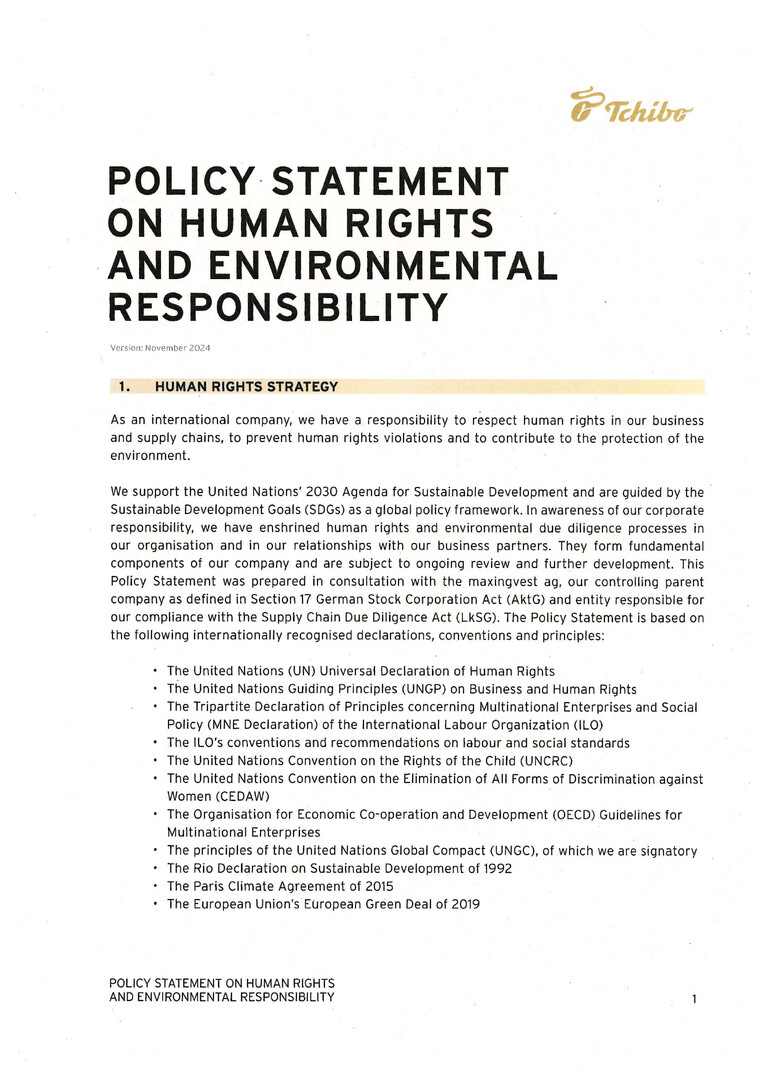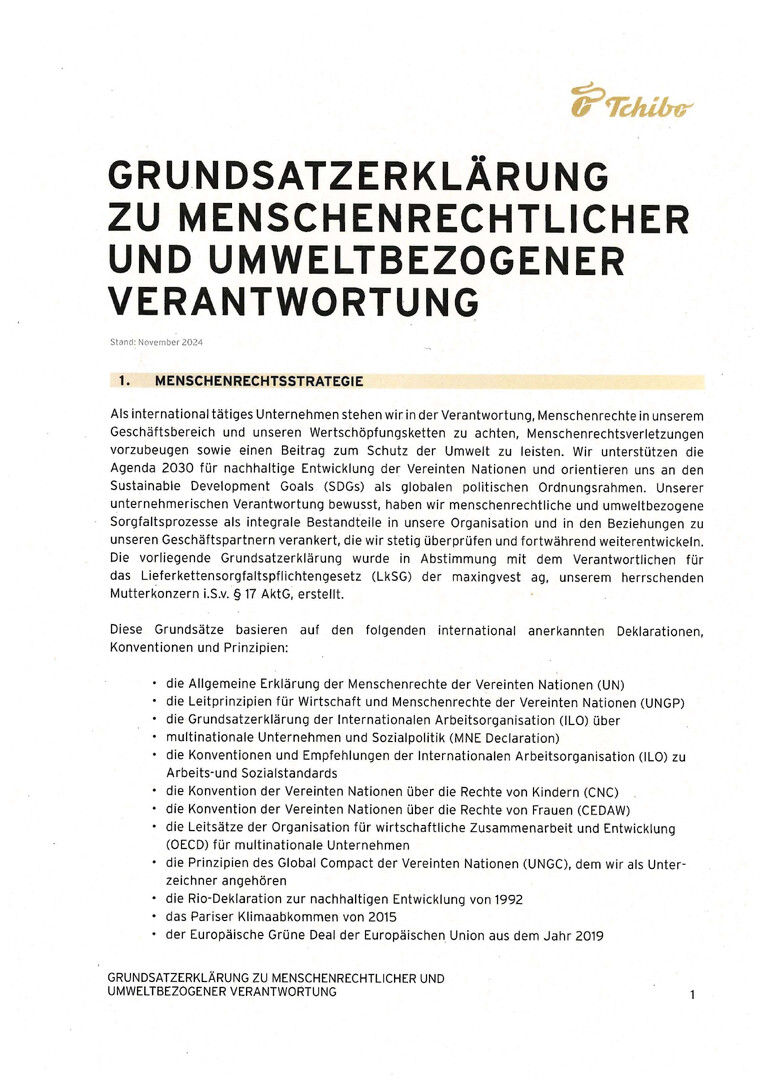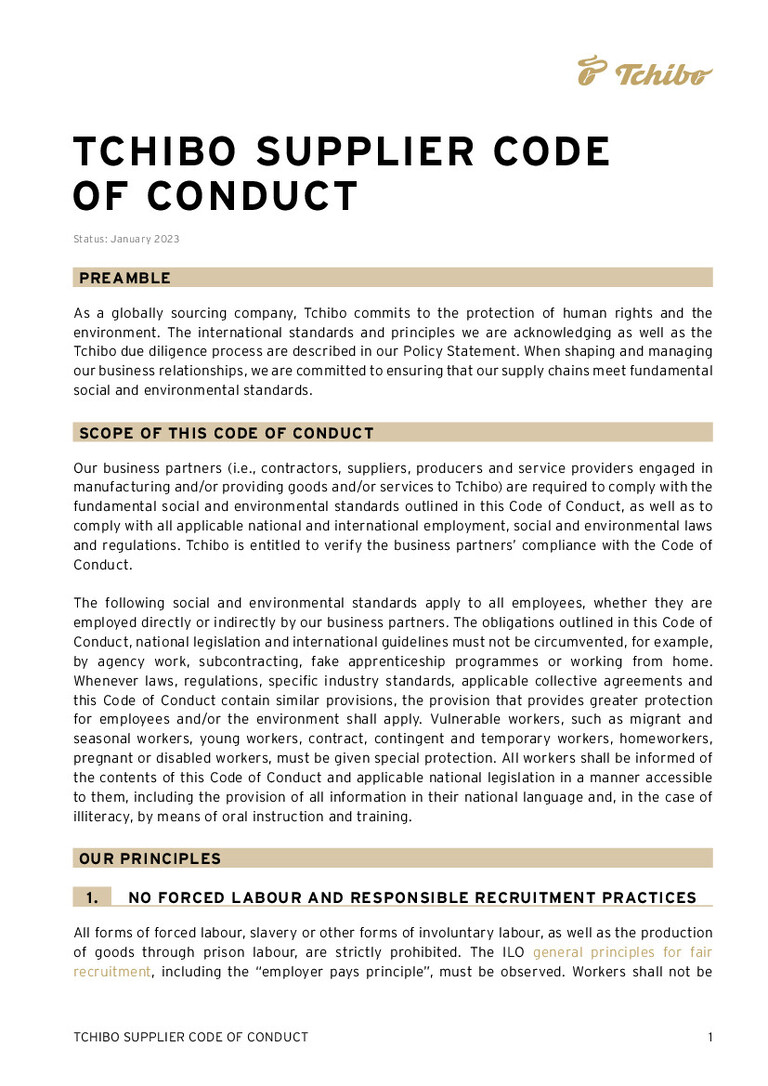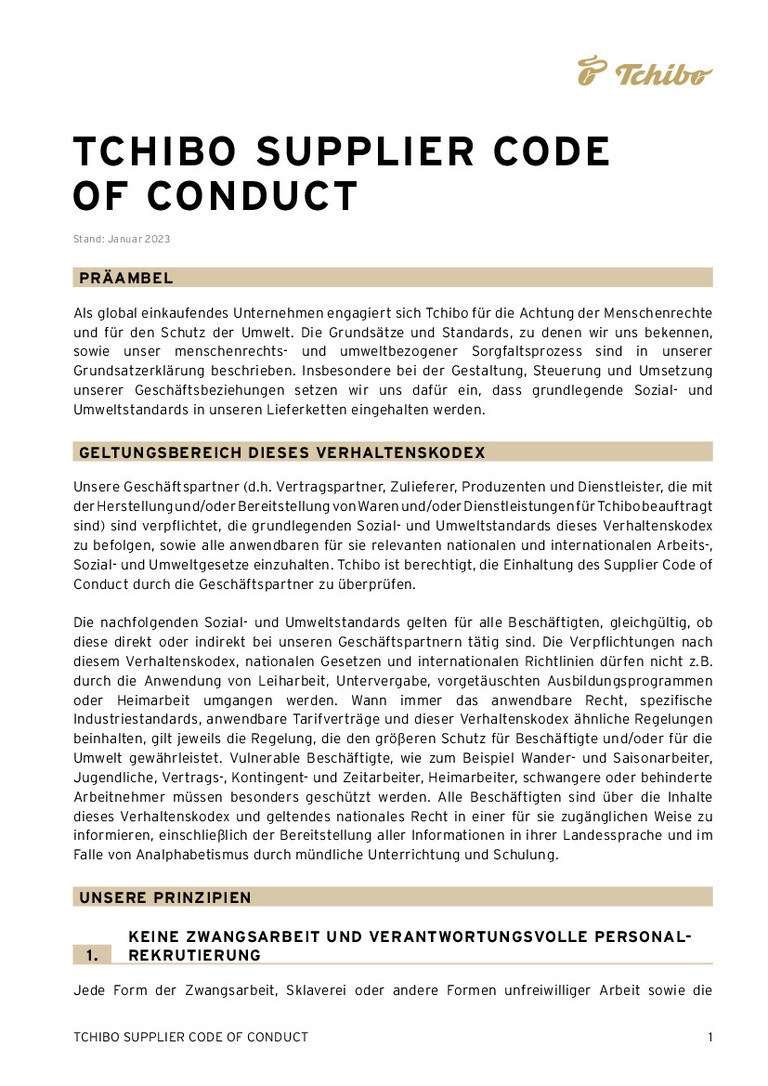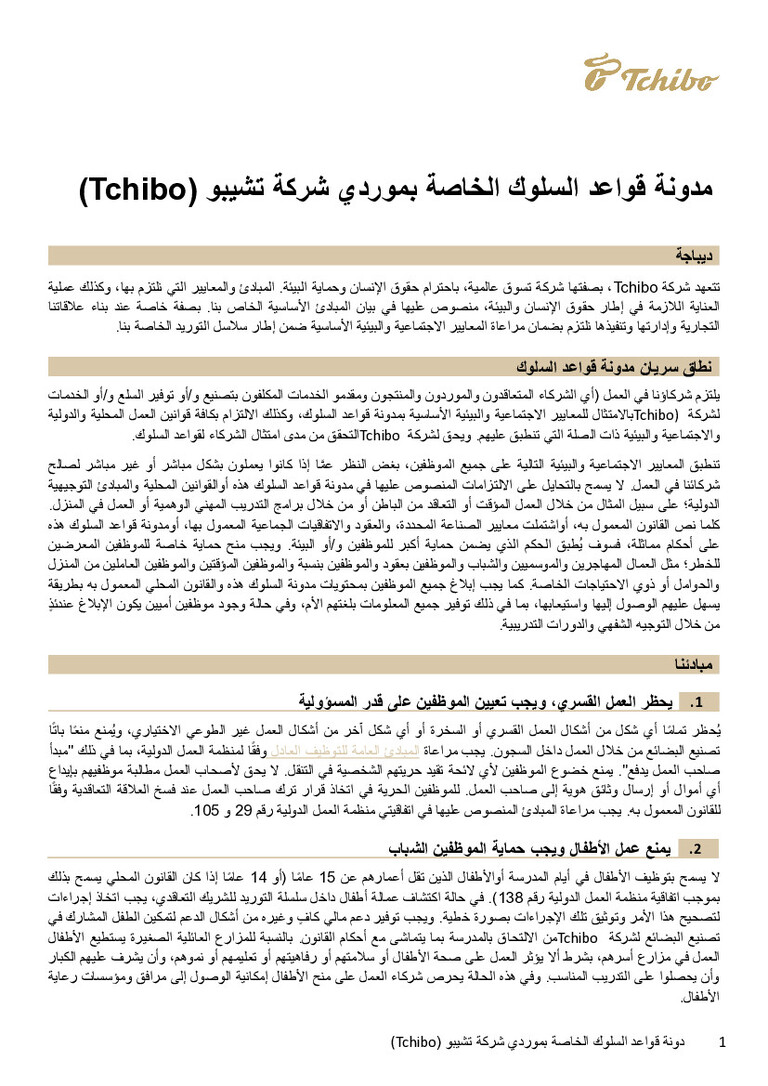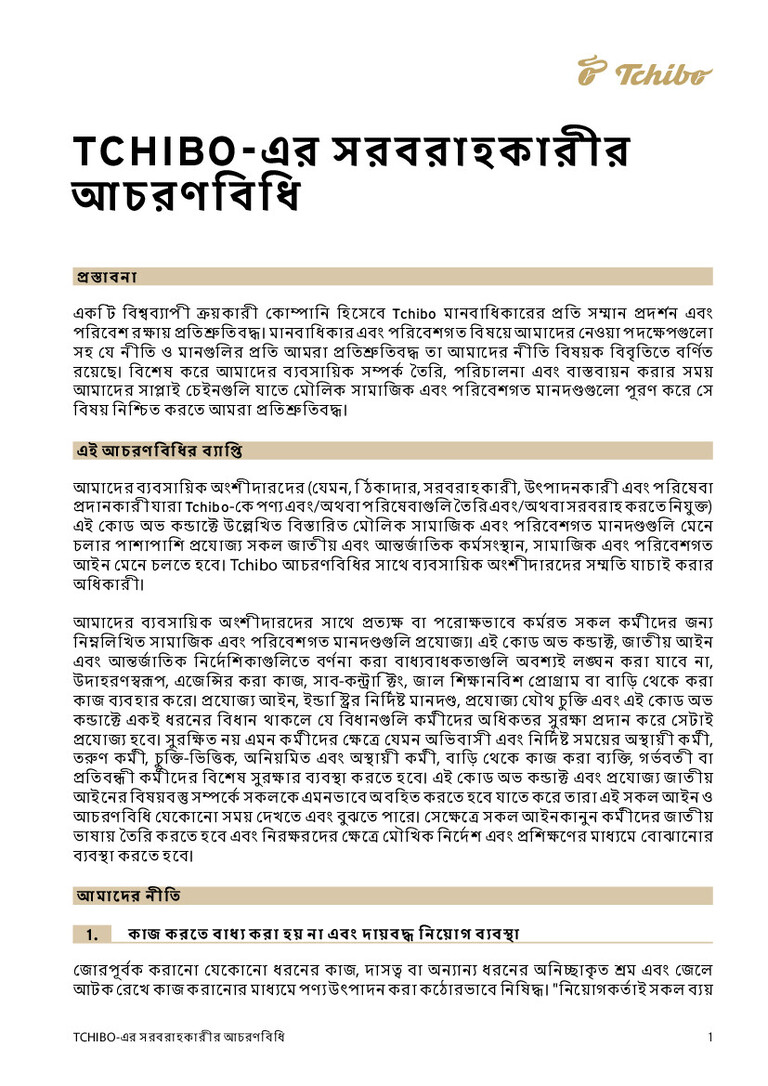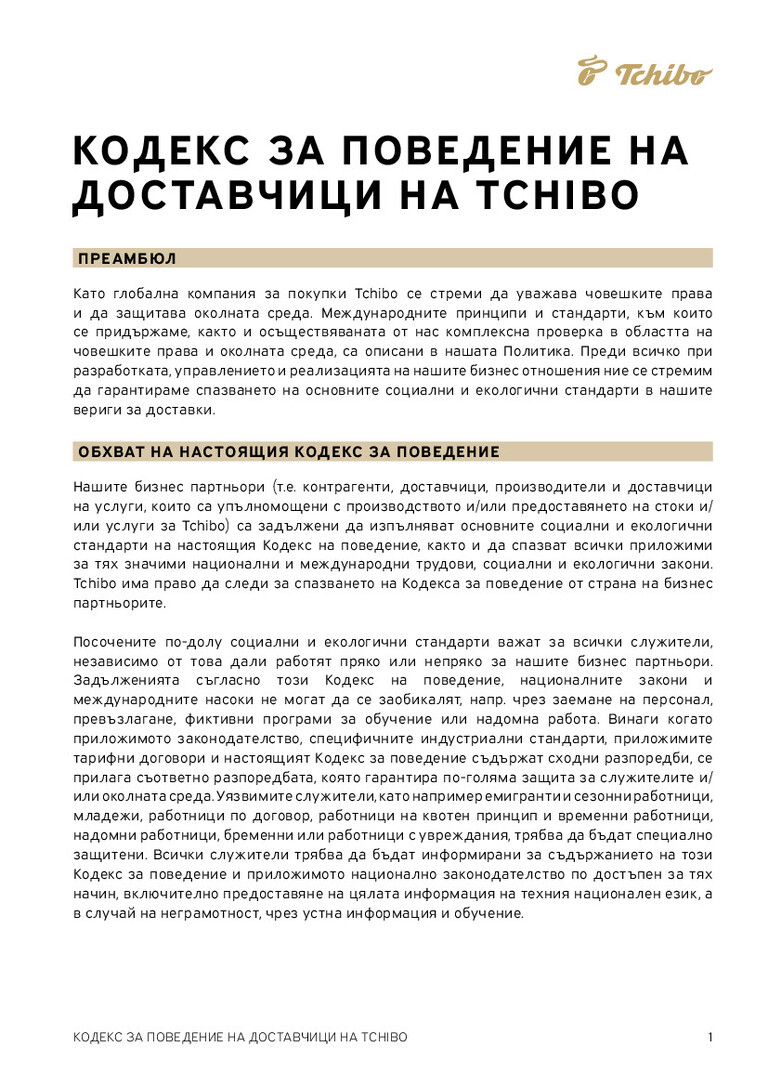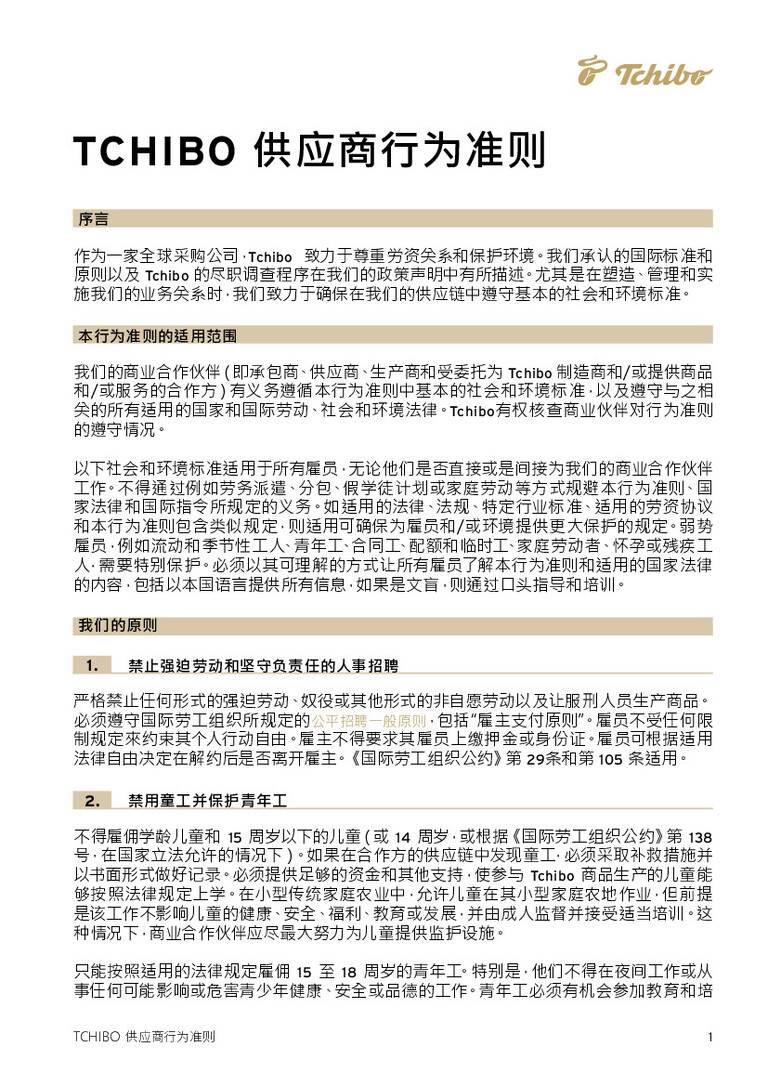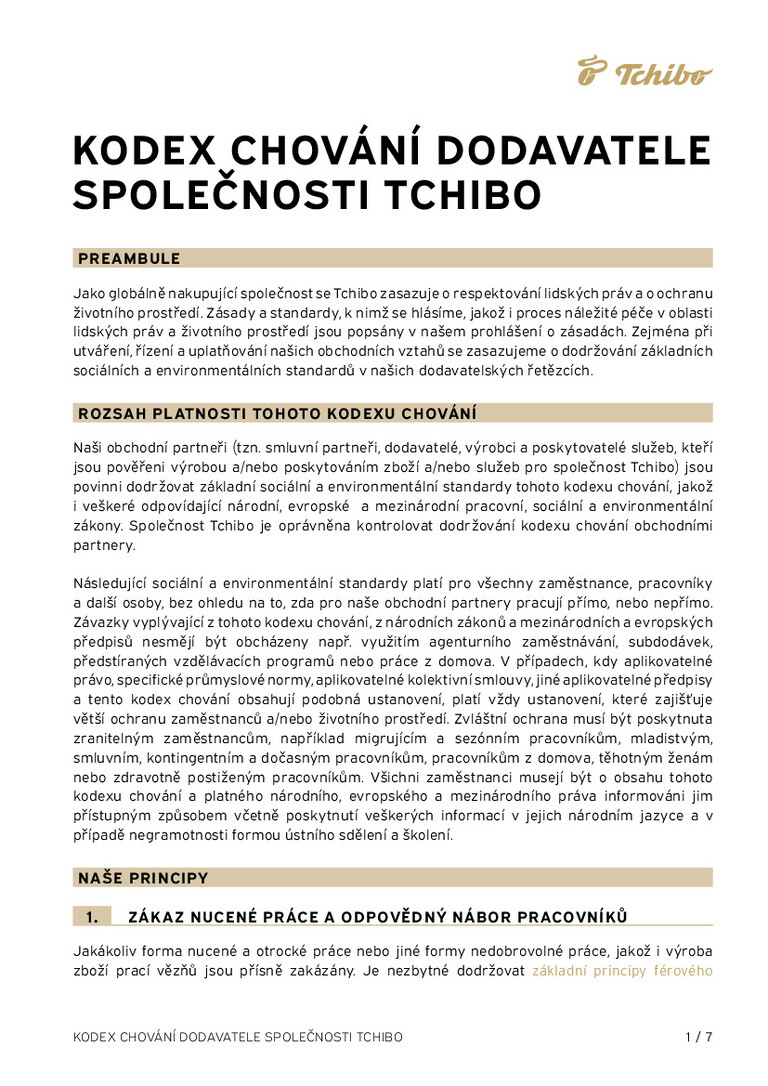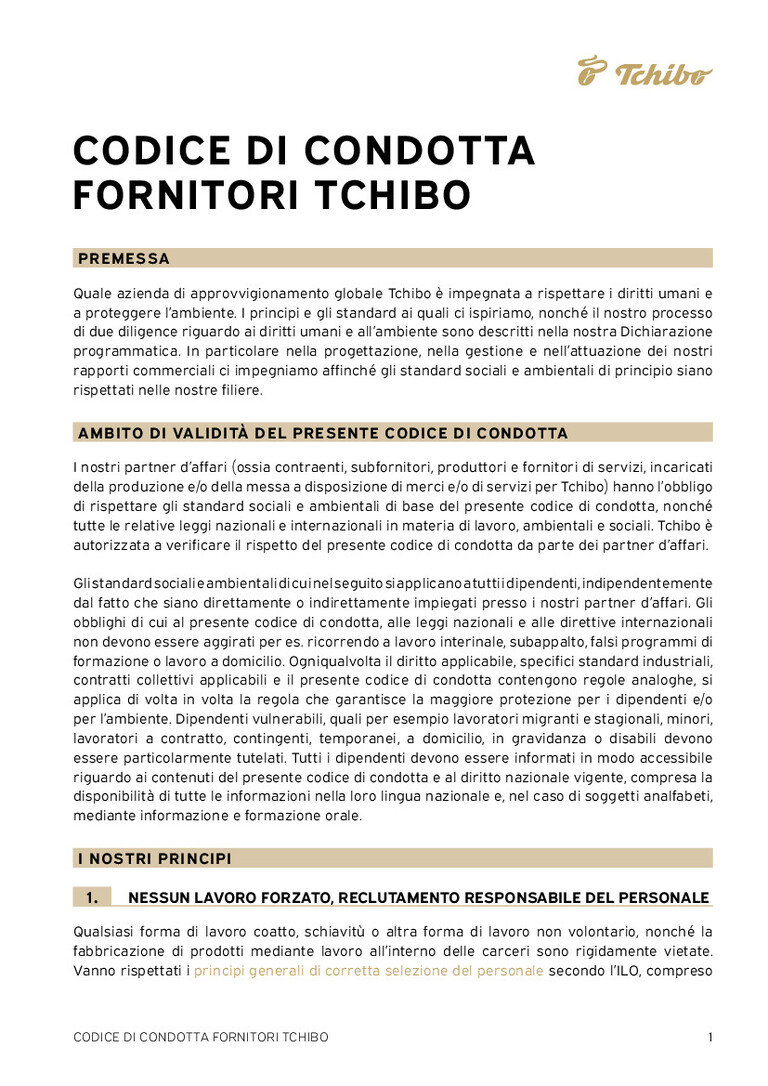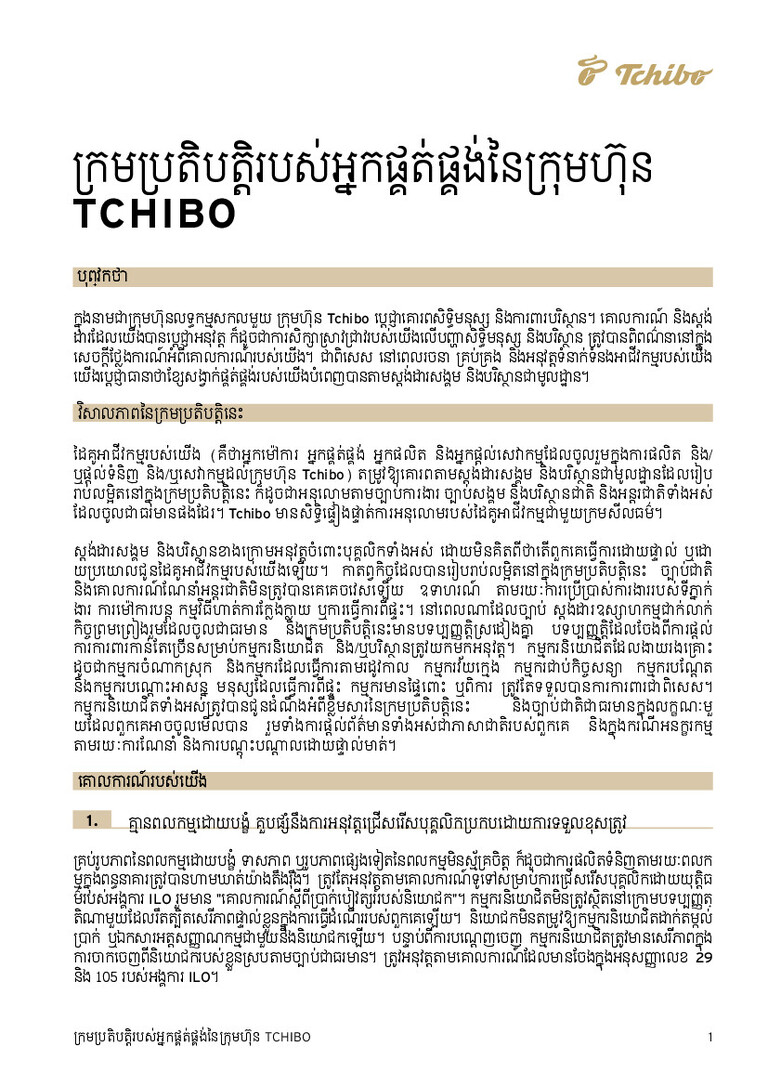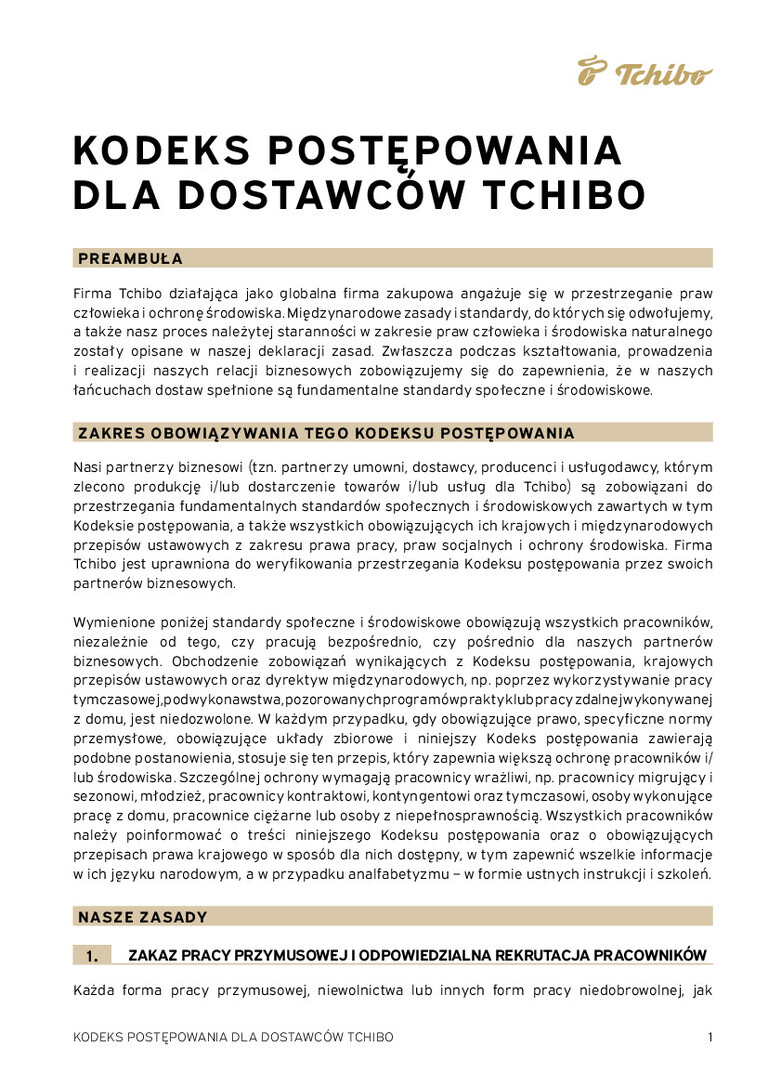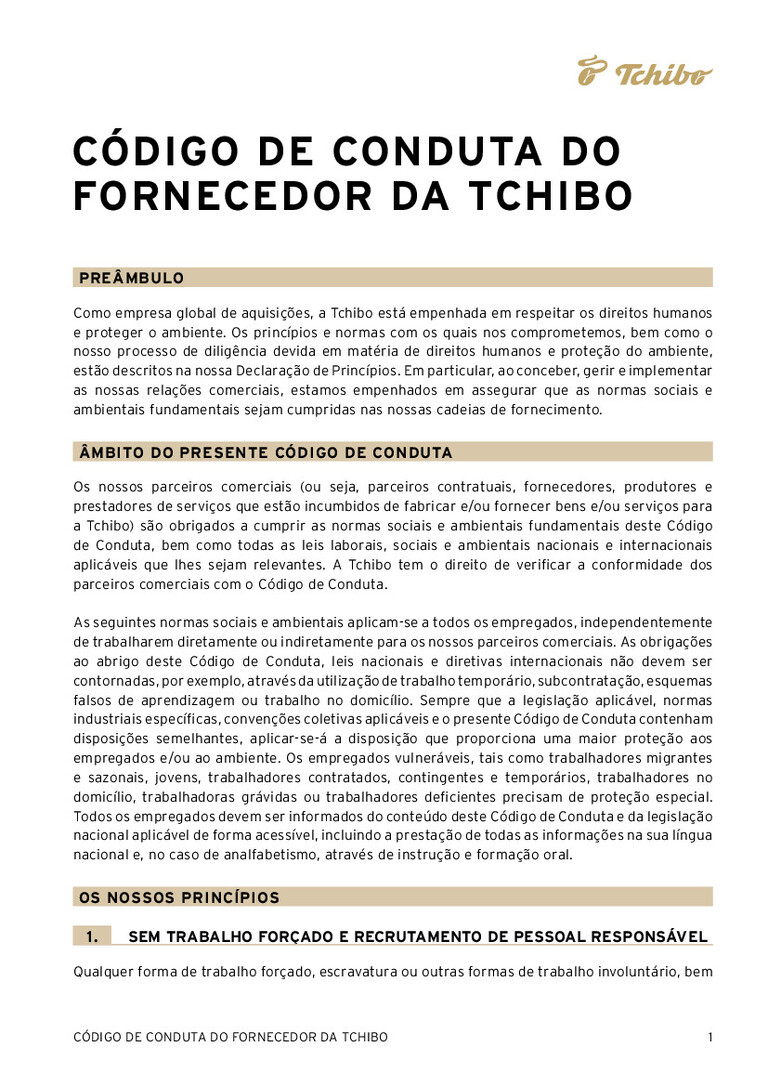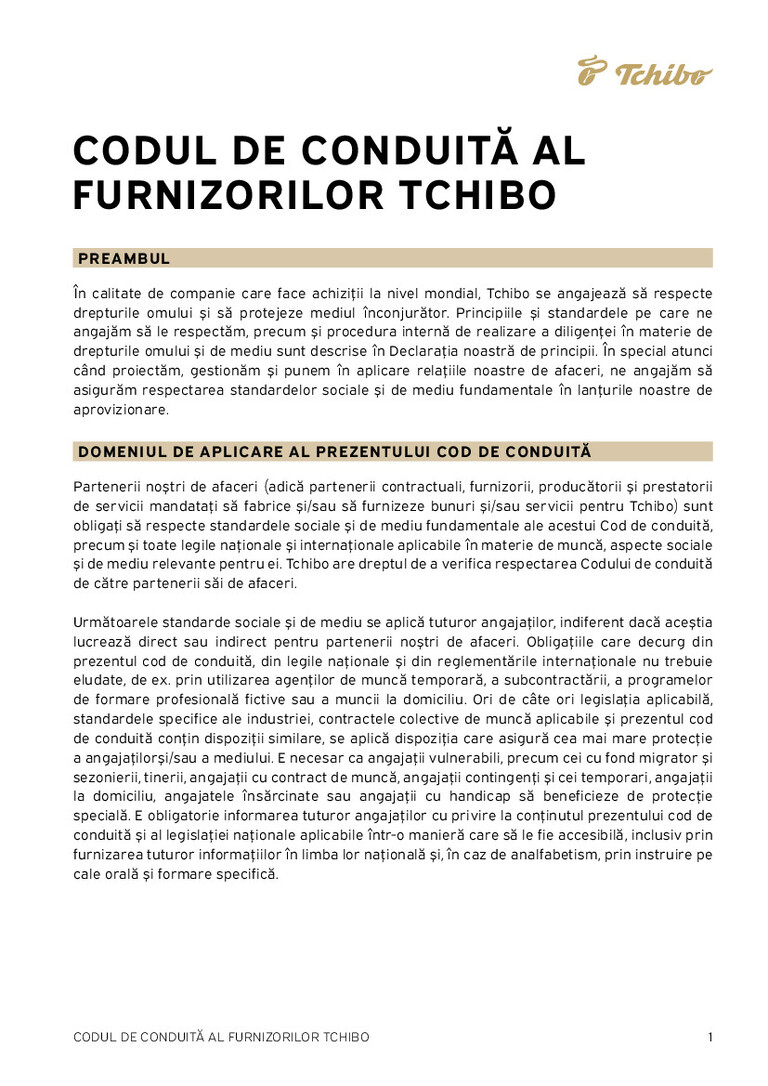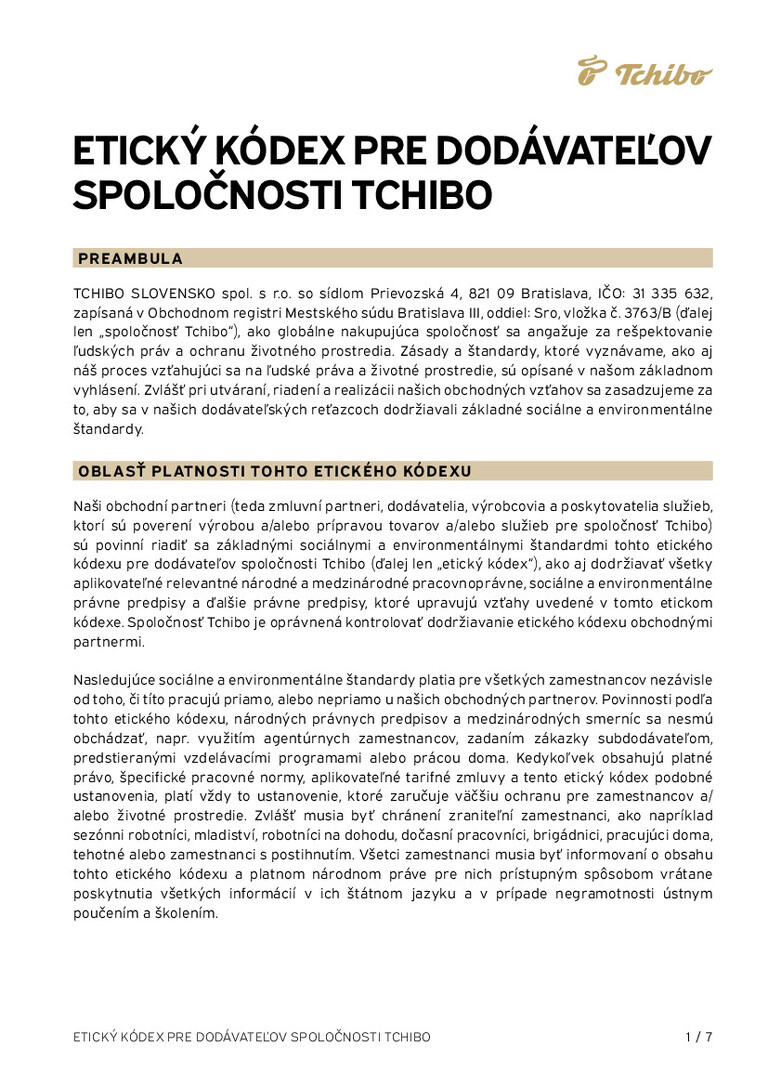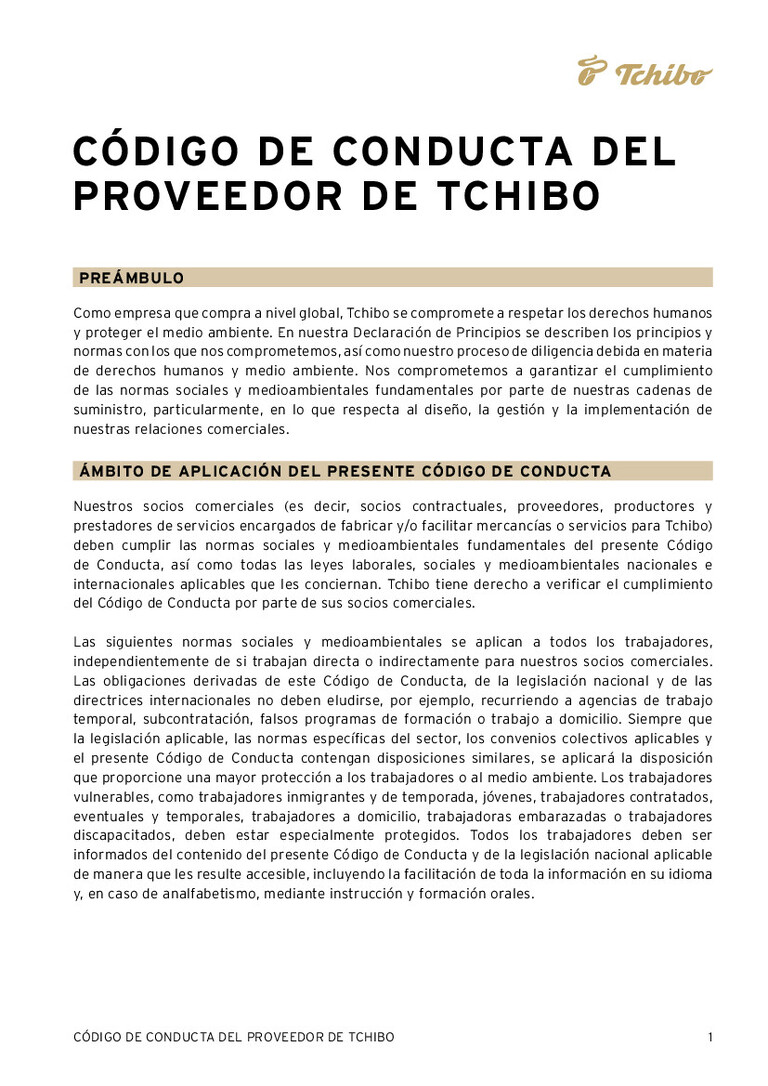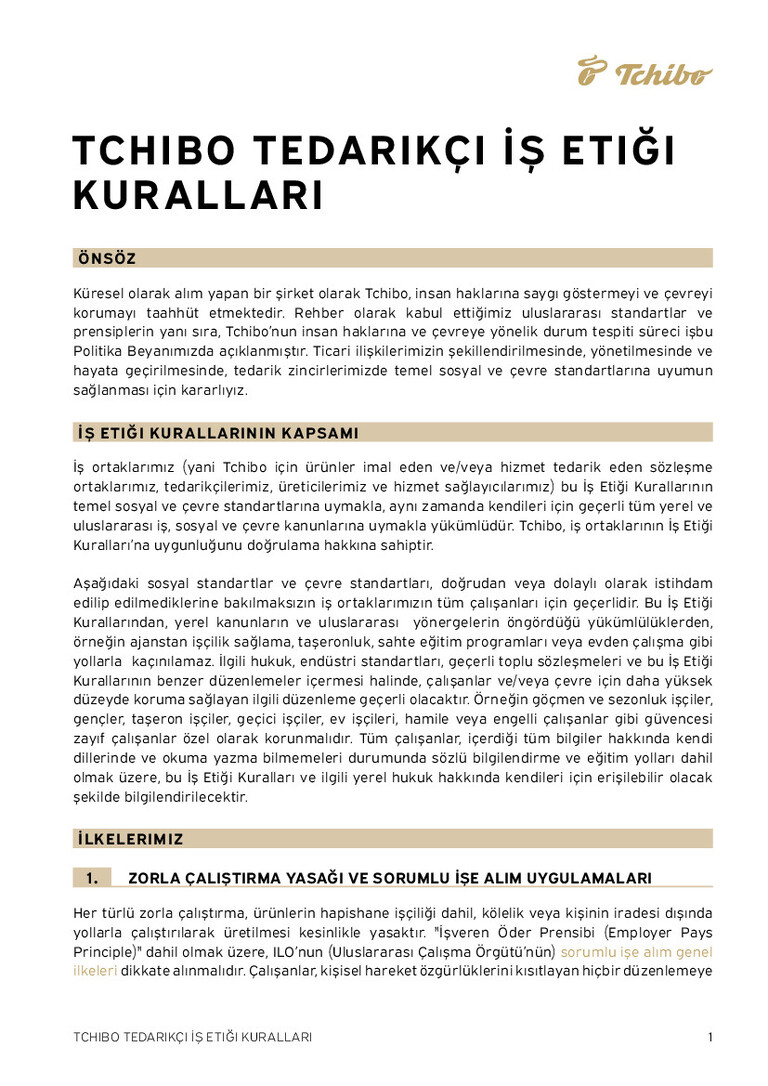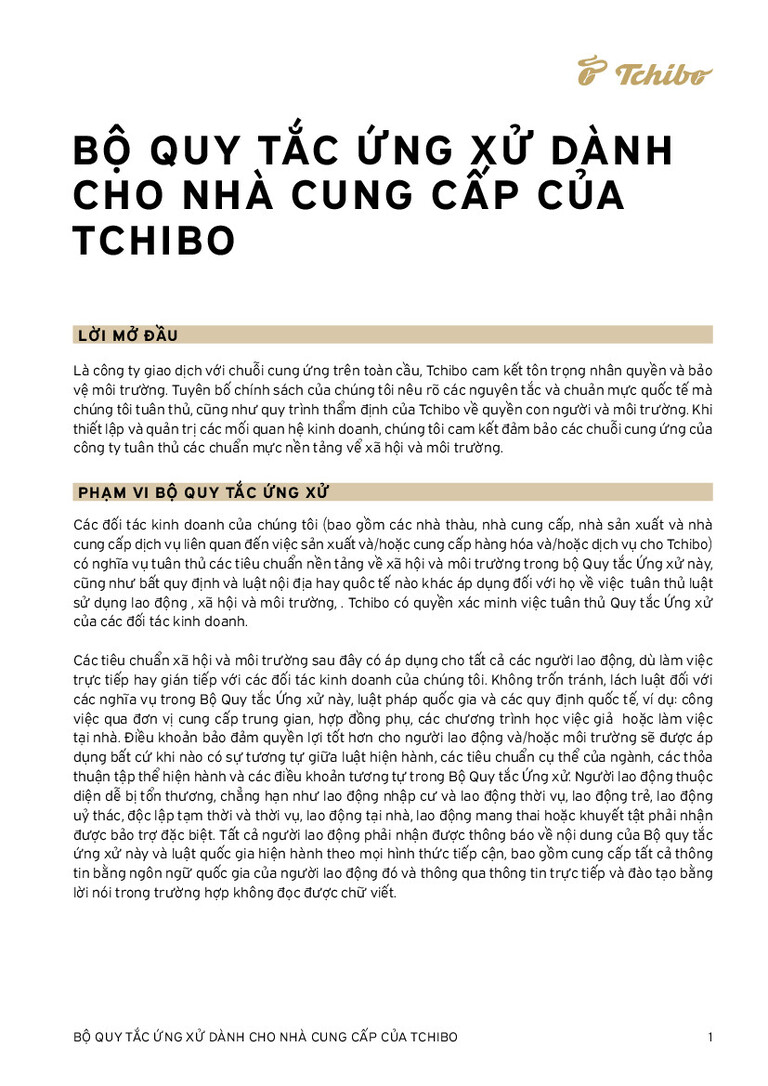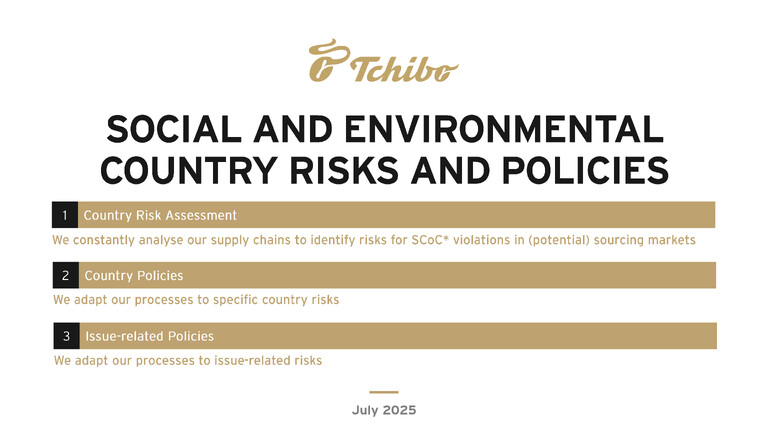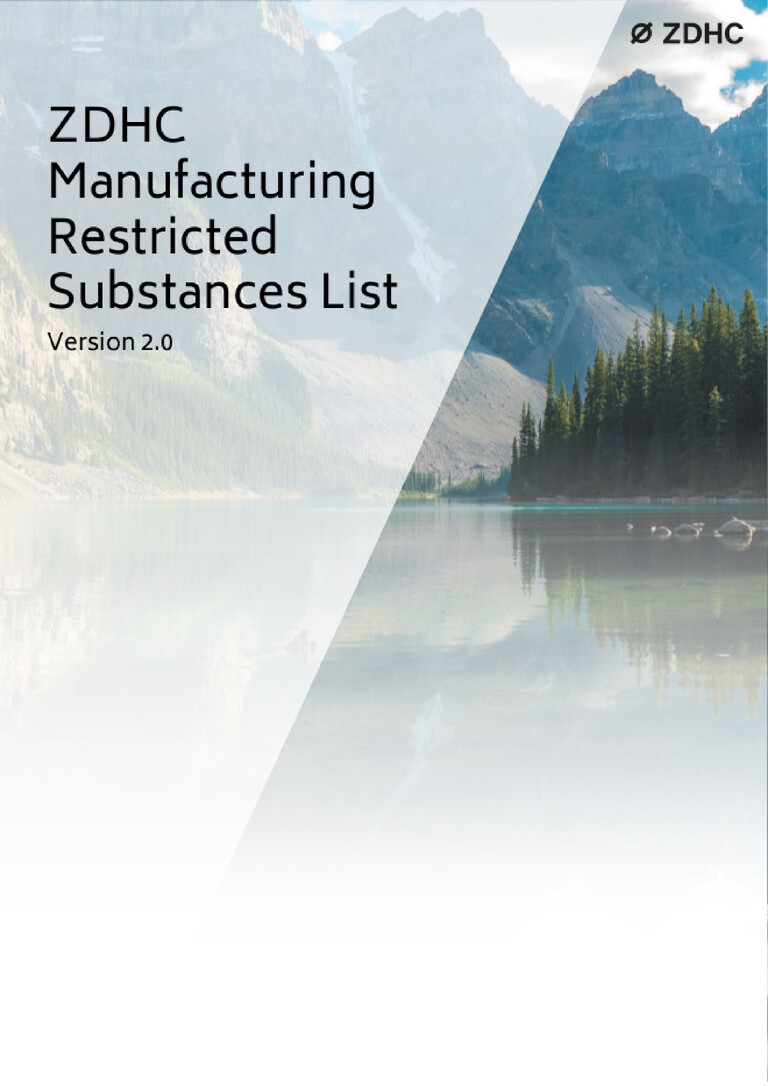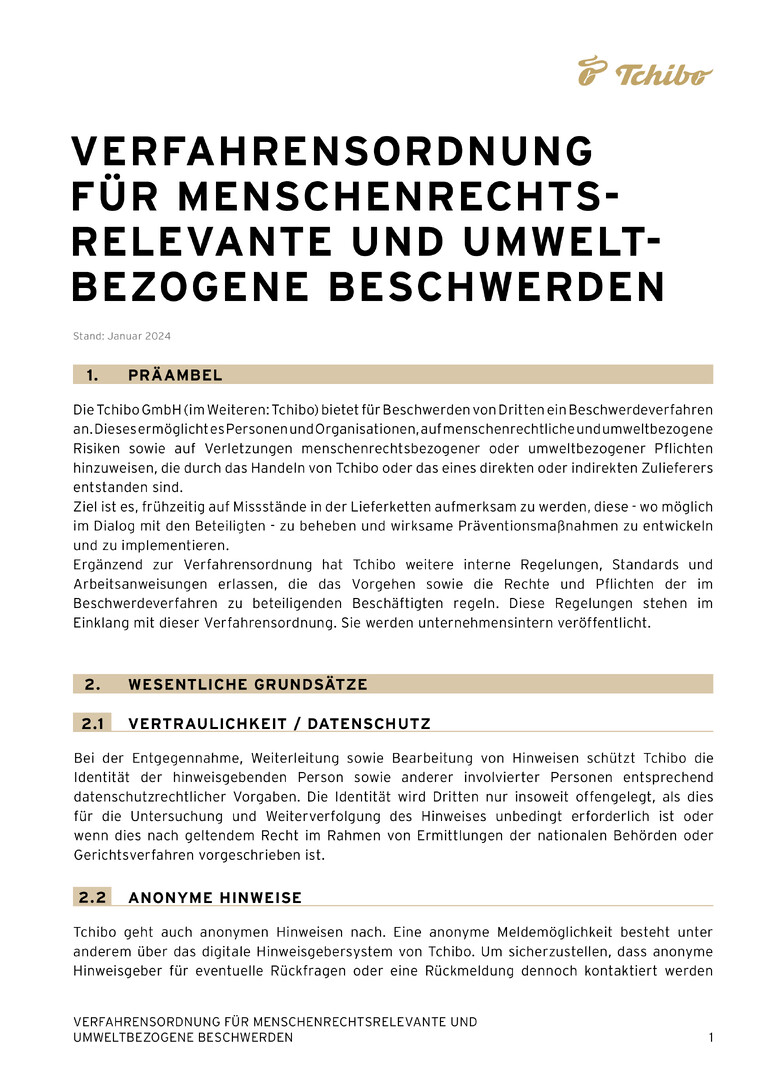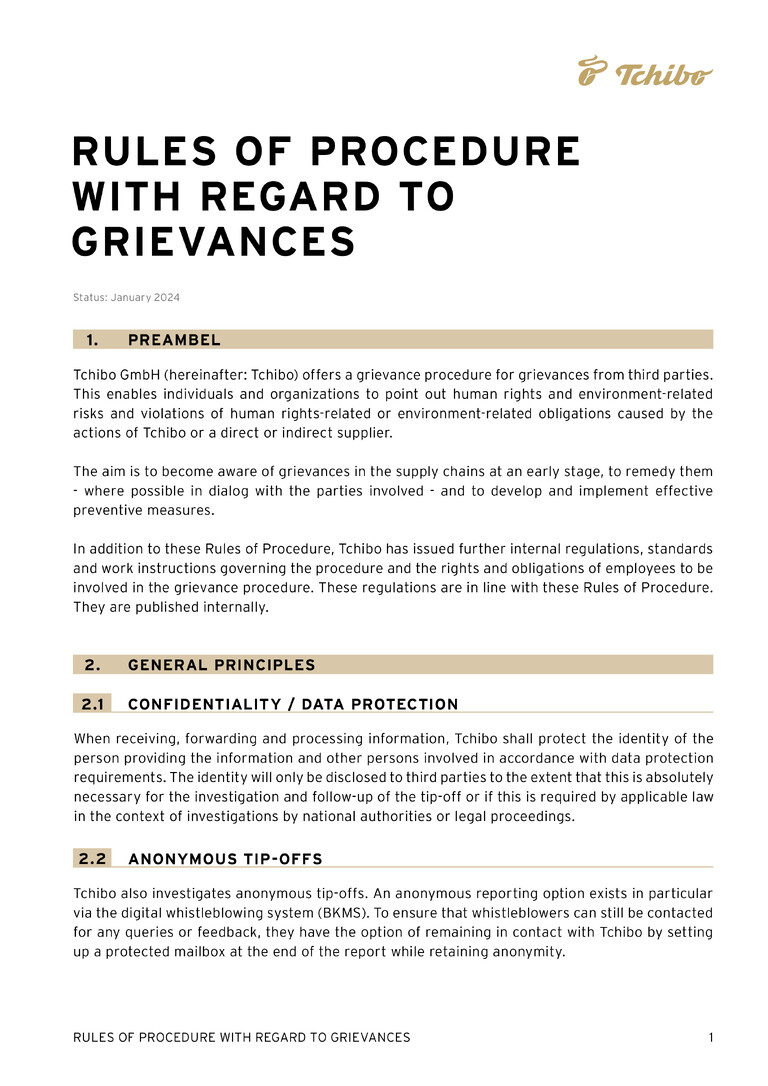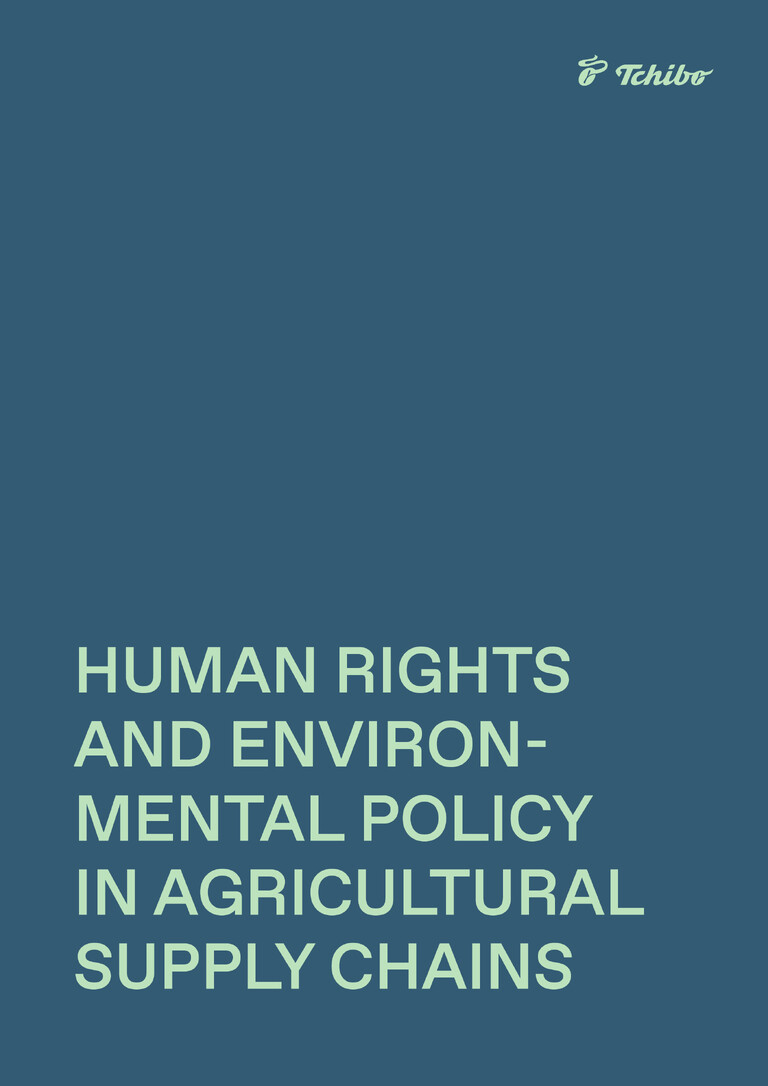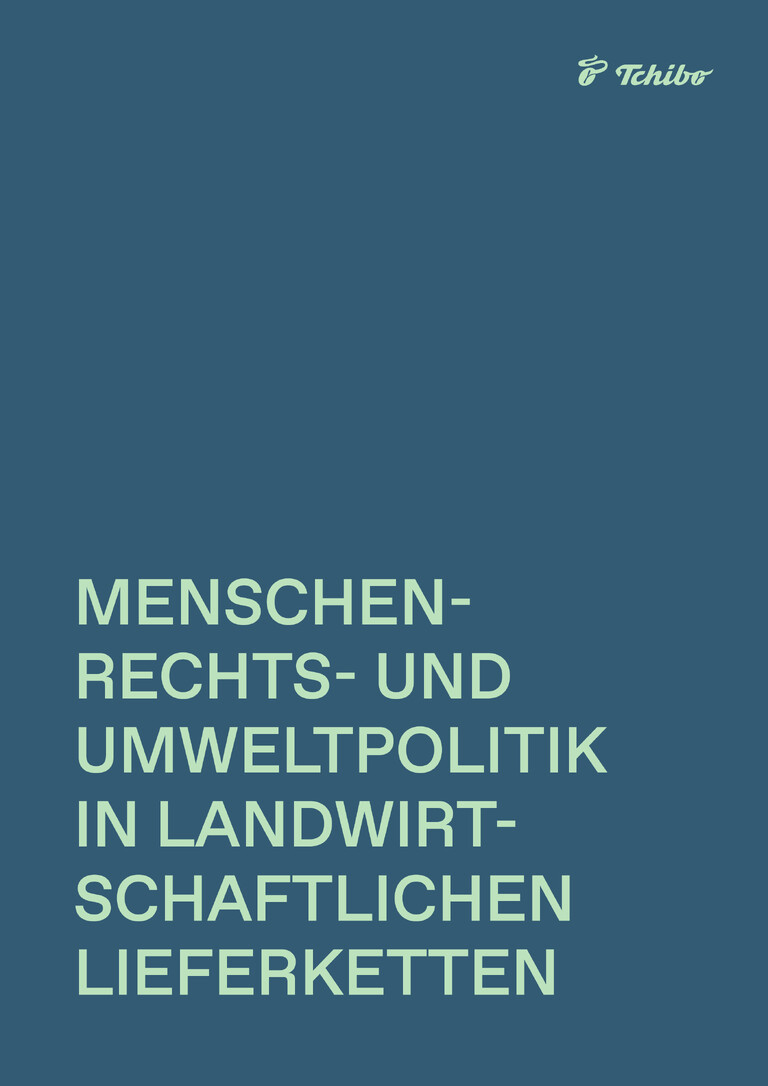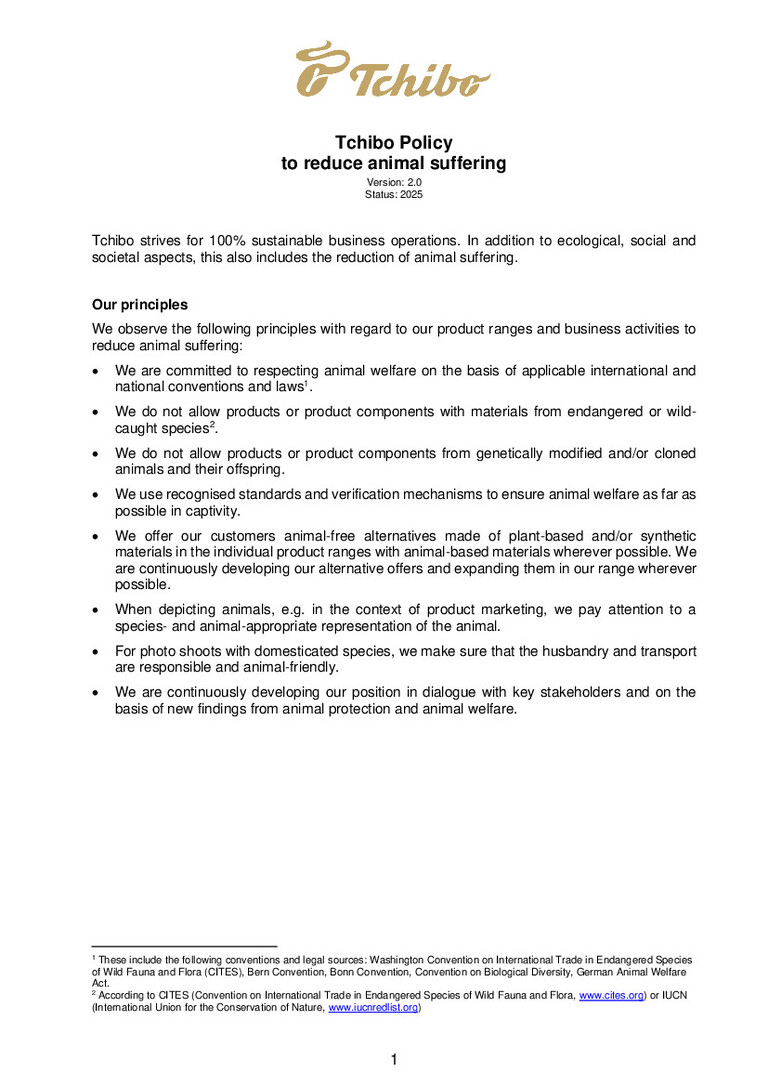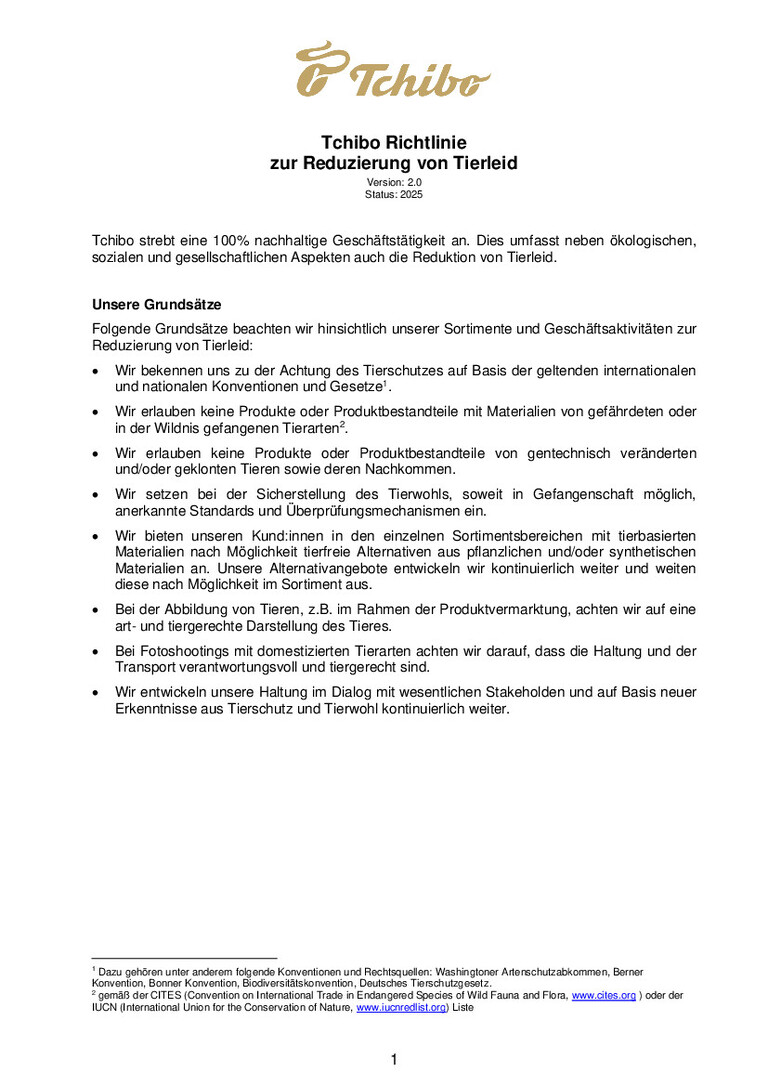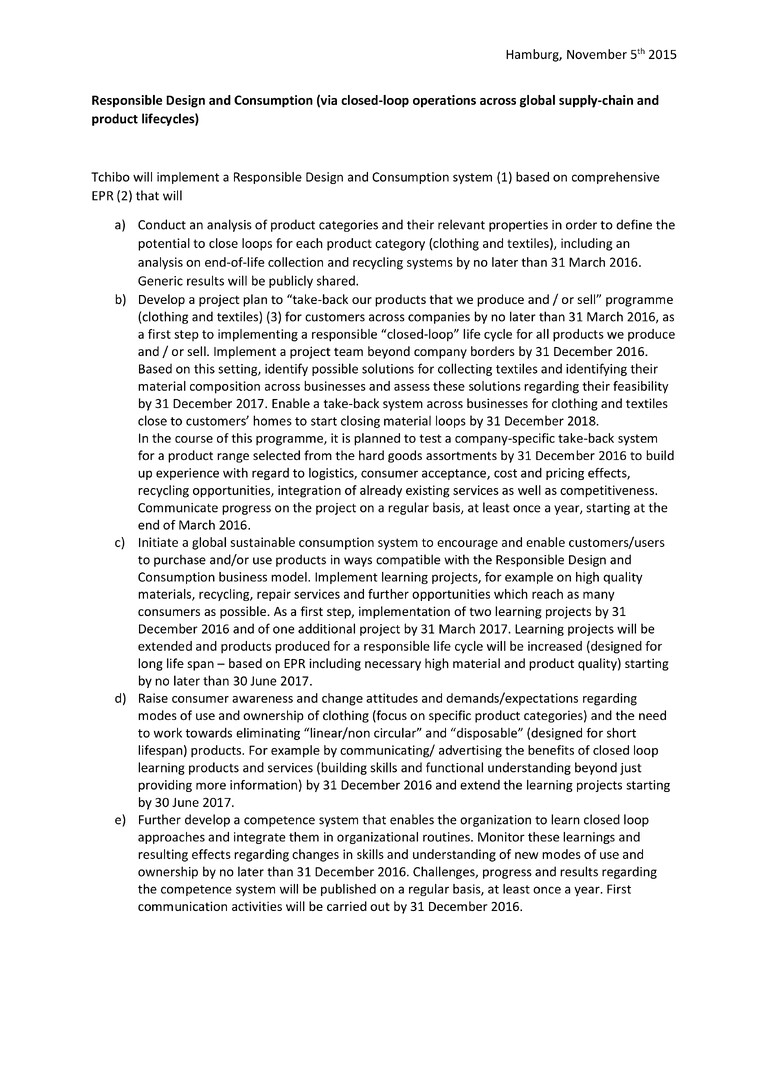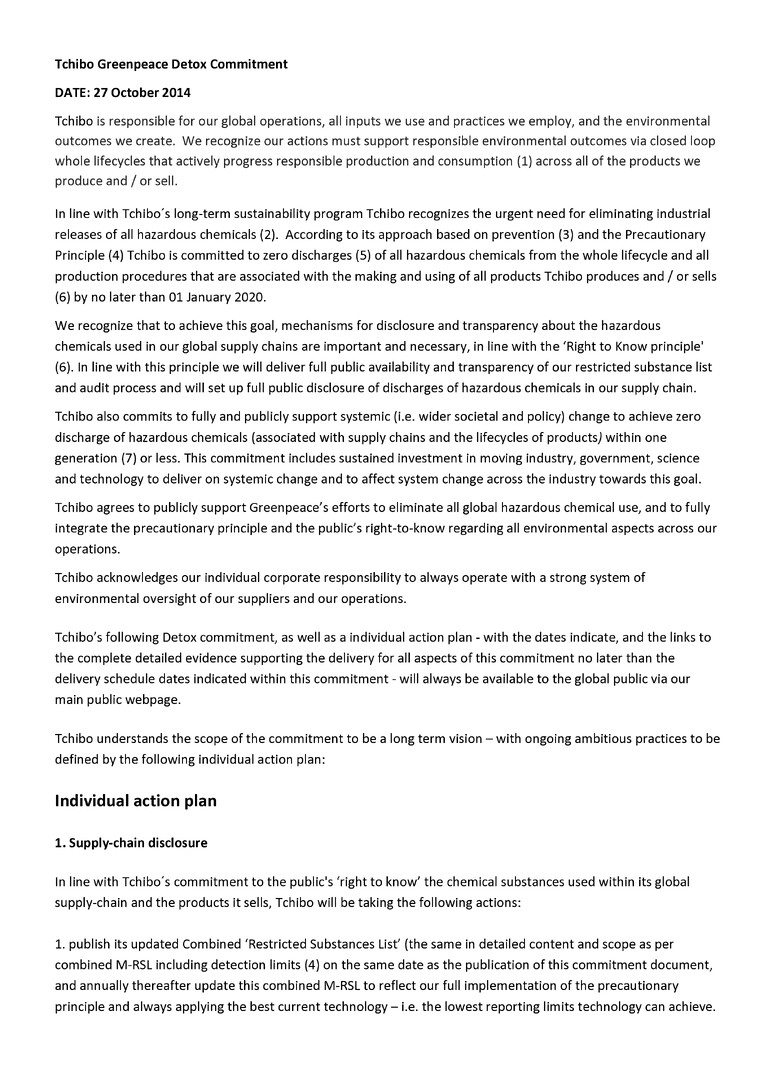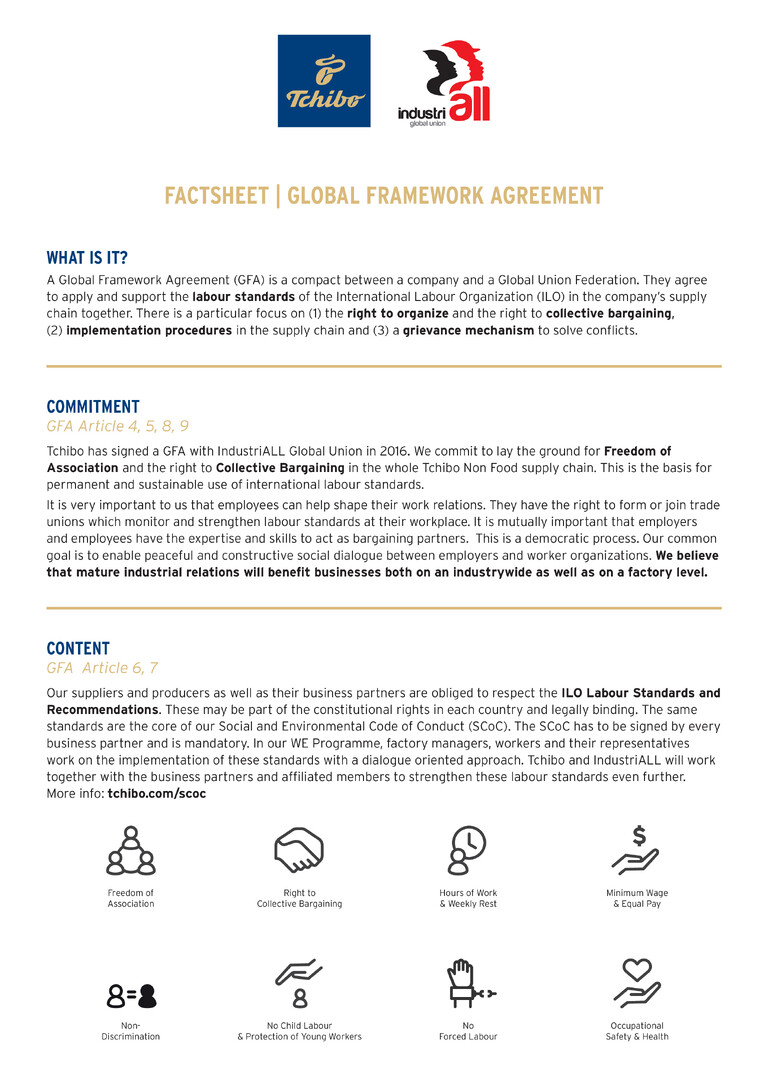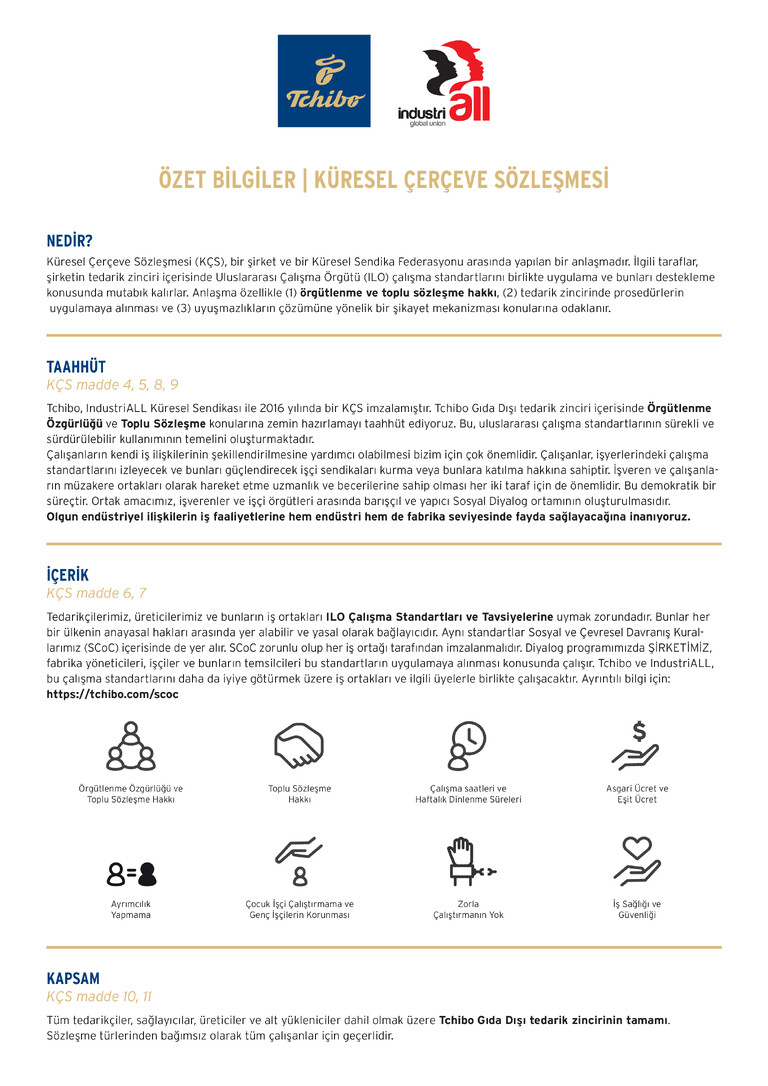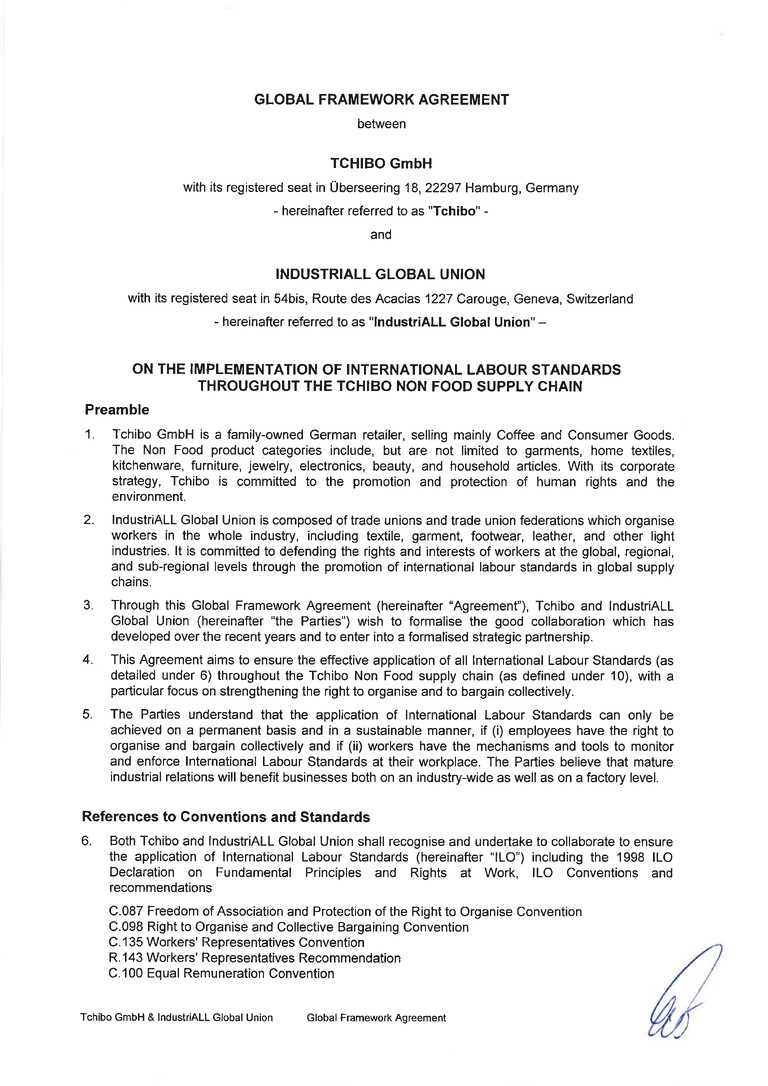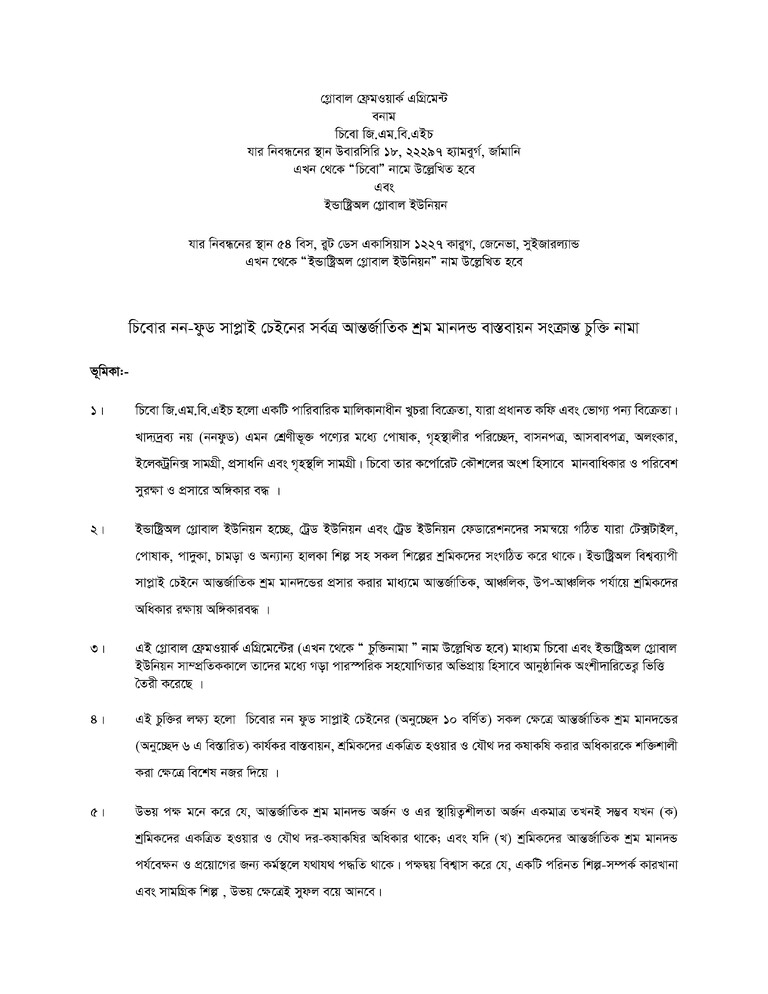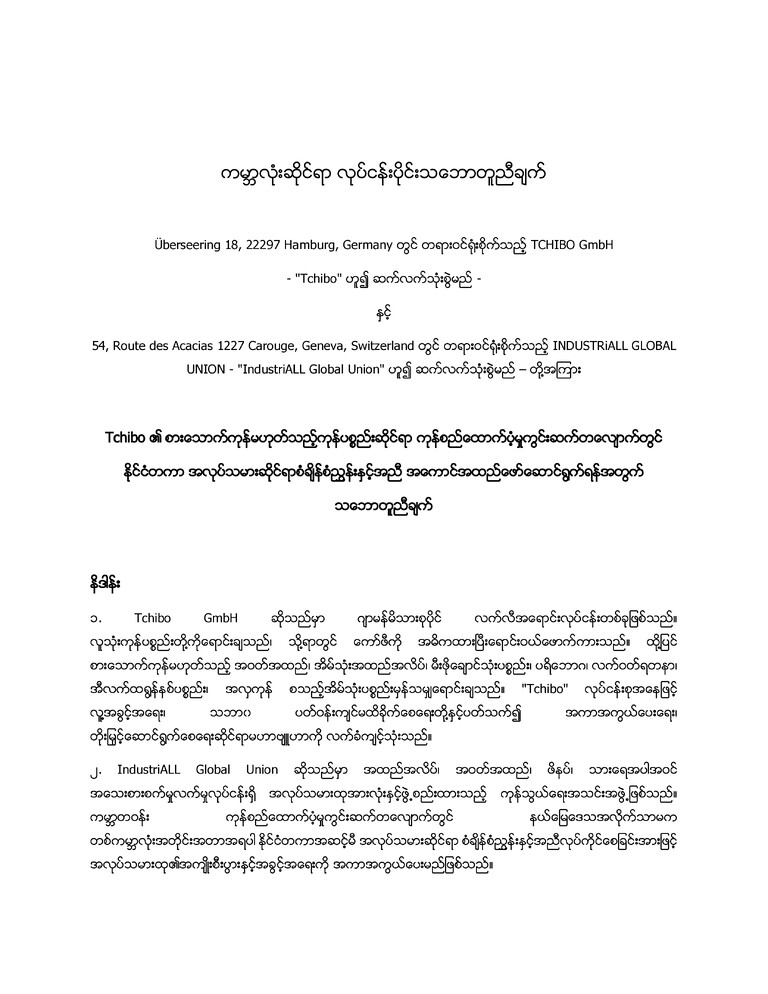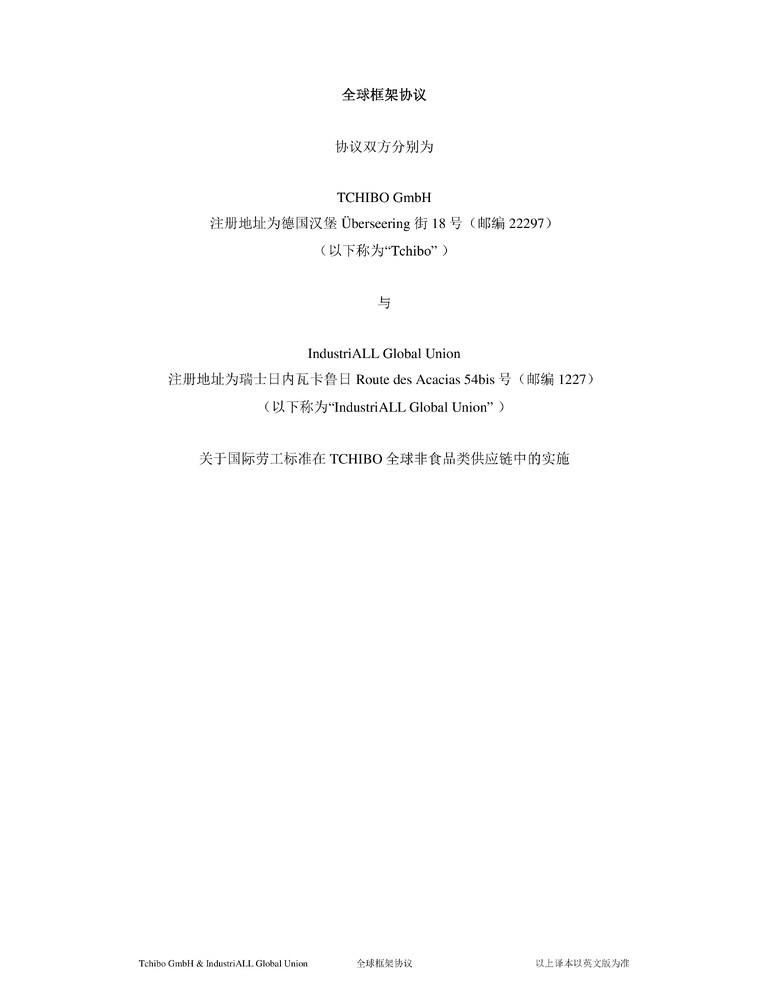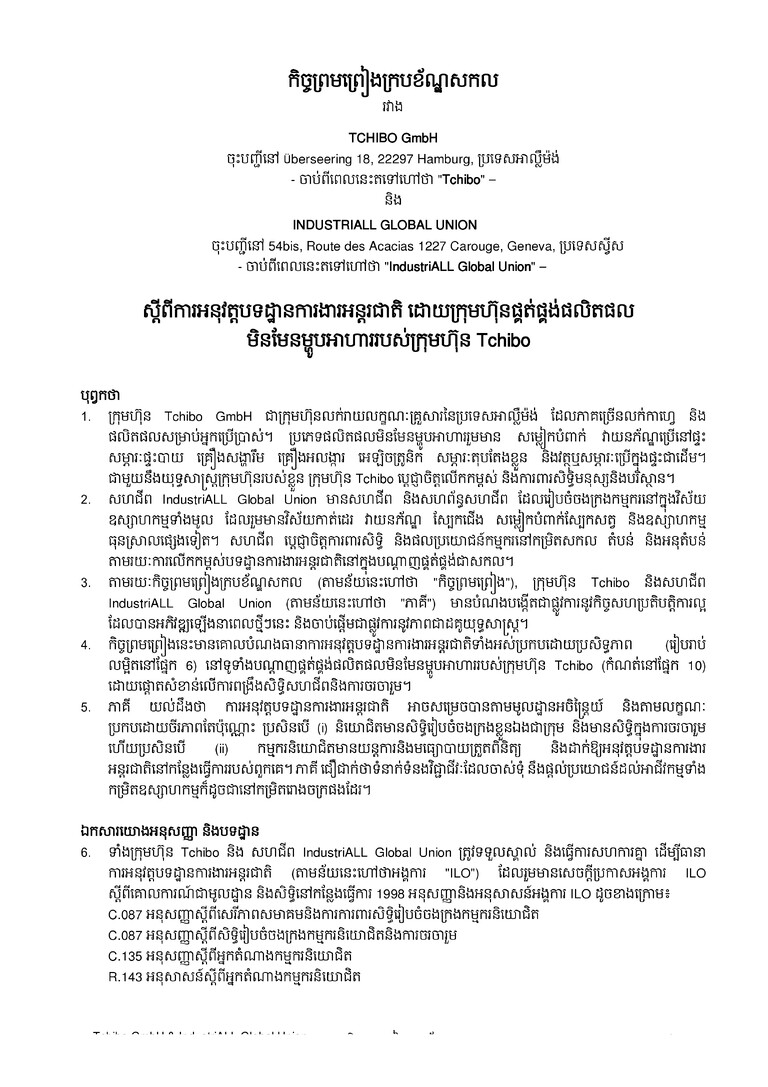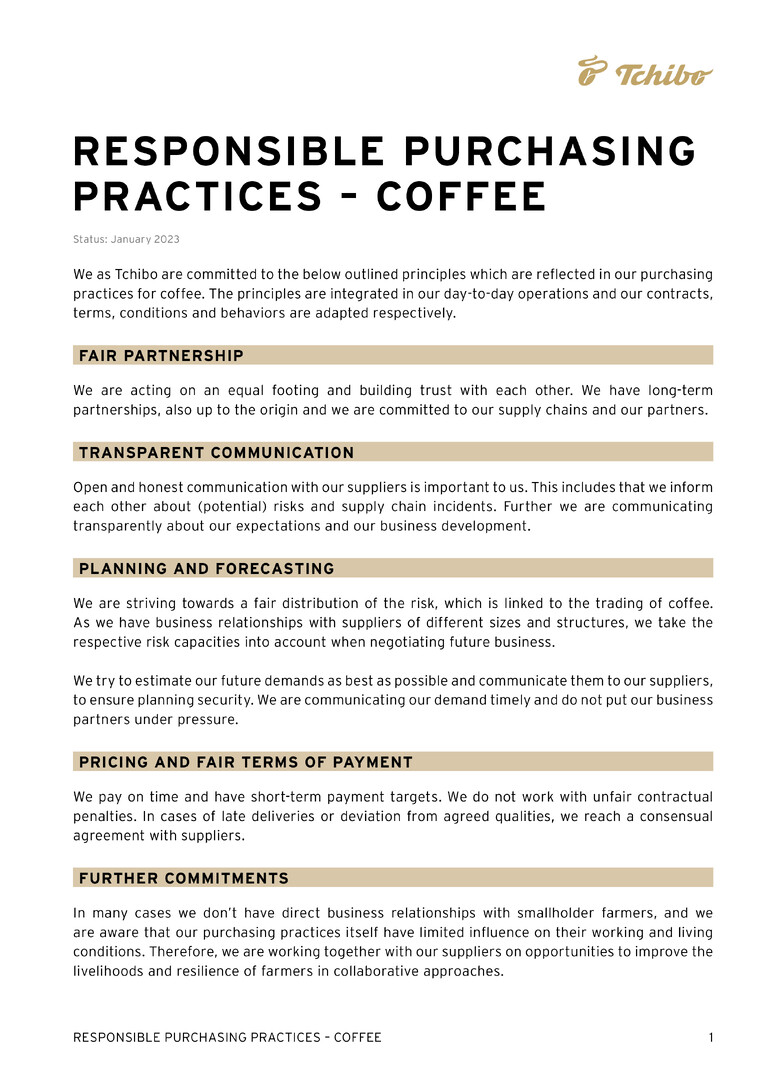Strategy
Guiding Principles
Sustainable Development Goals (SDGs)
With our sustainability goals, we contribute to the global Sustainable Development Goals.
With the 2030 Agenda, the United Nations has adopted a global action plan for states, companies, and other stakeholders since 2015 to jointly address the most important challenges facing humanity and the environment.
At the core of this action plan are 17 Sustainable Development Goals (SDGs) for social, economic, and ecological development – from poverty eradication and reducing inequalities to climate protection. As a member of the United Nations Global Compact and part of the global community, we contribute to the SDGs and align our sustainability commitment with the SDGs where we have the greatest impact. Nine of the 17 SDGs are relevant to us in our supply chains and product ranges. They form the framework for how we understand social and environmental responsibility, how we define it for the Tchibo world, and how we implement it in our product ranges, supply chains, and processes.
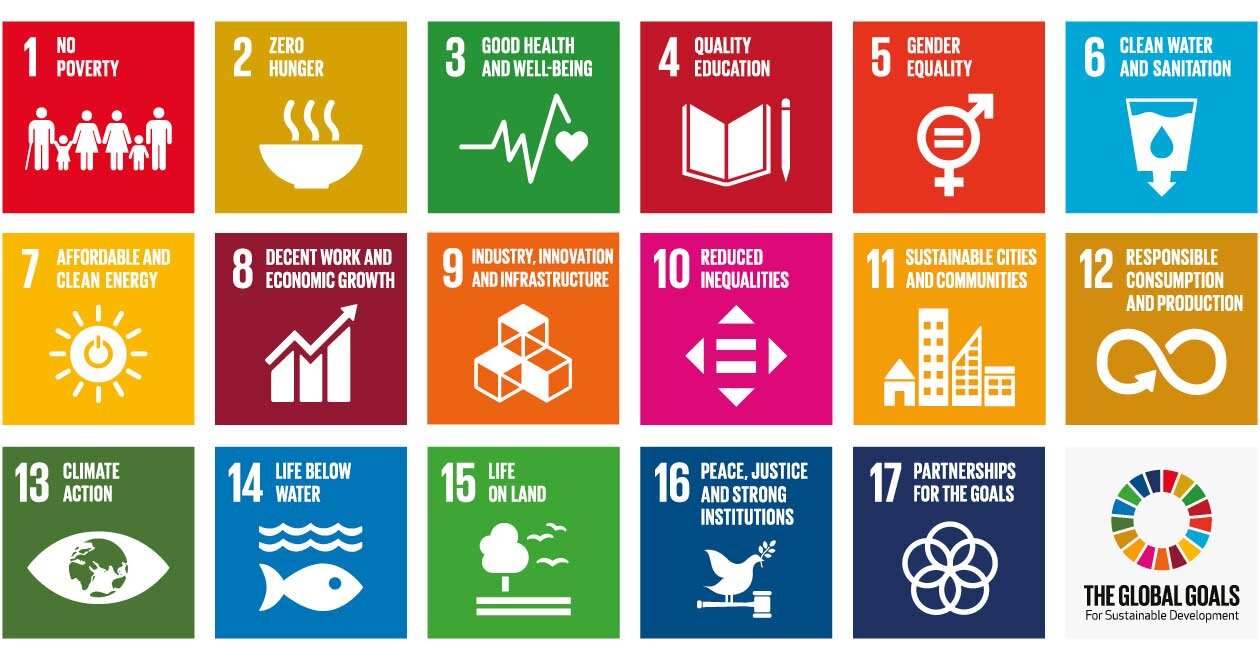
International Labor Organization (ILO)
The right to freedom of association and collective bargaining, as well as the prohibition of forced labor, are part of universal human rights, the economic, social, and cultural rights of the UN ICESCR, and the globally applicable core labor standards of the International Labor Organization (ILO).
The prohibition of child labor is part of universal human rights, the economic, social, and cultural rights of the UN ICESCR, and the globally applicable core labor standards of the International Labor Organization (ILO). Tchibo joined the ILO's Child Labor Platform (CLP) in 2023. This is an alliance of several sectors that have set themselves the goal of reducing or eliminating child labor.
We are involved in the CLP in both the coffee and non-food sectors. Our current focus in our collaboration is on Honduras (coffee) and India (cotton).
Company Values
Our values form the foundation of our actions: responsibility, trust, proximity, inspiration, joie de vivre and quality are the guiding principles from which we derive the criteria for our actions in the area of sustainability.

This is where our principles of action come from:
Create impact: Achieve measurable and tangible improvements – for people, the climate, and the environment.
Be close to people: Develop measures together with those who should benefit, taking their actual needs into account and achieving a positive impact.
Act together: Find allies and develop the best solutions on an equal footing.
Overcome obstacles: If there is no solution yet, we look for constructive approaches.
Code of Conduct
Responsibility is of central importance to us – both for us as a company and for all our employees. Our Code of Conduct, Tchibo's Code of Conduct, sets out our binding standards and provides guidance for all Tchibo employees worldwide. The Tchibo Code of Conduct contains 13 basic principles governing our collaboration and our dealings with business partners. Tchibo employees worldwide are committed to ethical business practices, fair behavior, and unconditional compliance with all laws.
Policy Statement on Human Rights and Environmental Responsibility
As an internationally operating company, we have a responsibility to respect human rights in our business areas and our value chains, to prevent human rights violations, and to contribute to environmental protection.
Supplier Policies & Guidelines
As a globally sourcing company, Tchibo is committed to respecting human rights and protecting the environment. The principles and standards to which we are committed, as well as our human rights and environmental due diligence process, are described in our Statement of Principles. We are particularly committed to ensuring compliance with fundamental social and environmental standards in our supply chains when designing, managing, and implementing our business relationships.
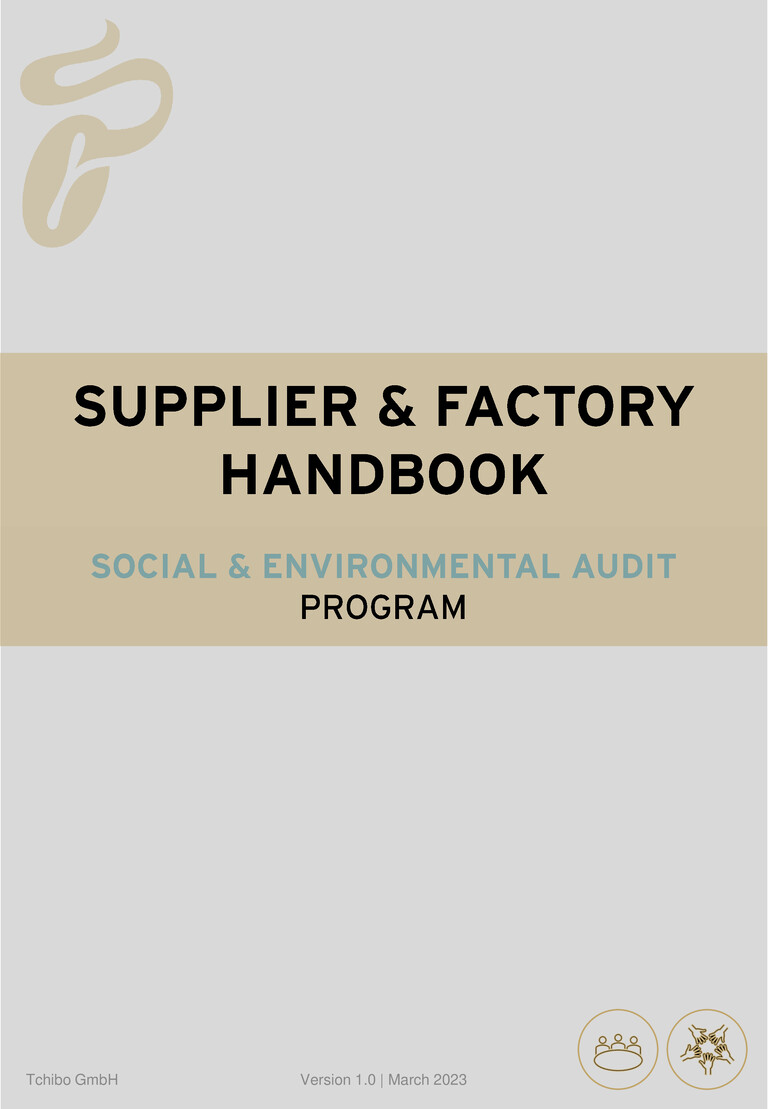
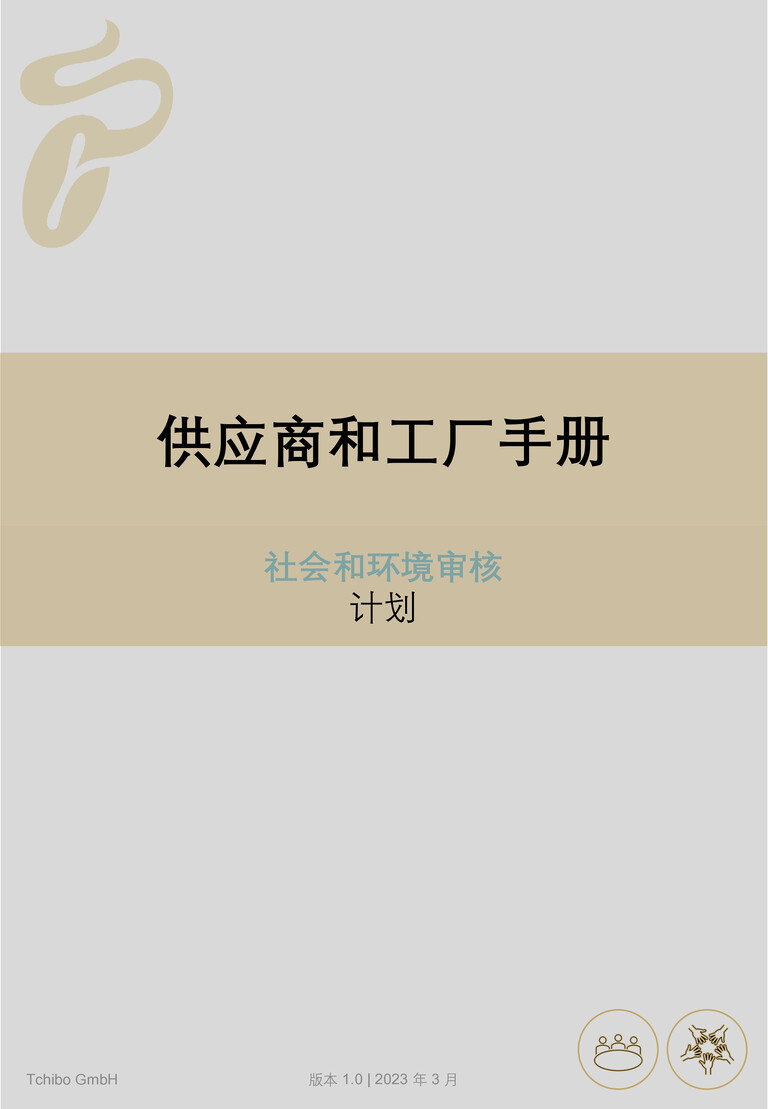
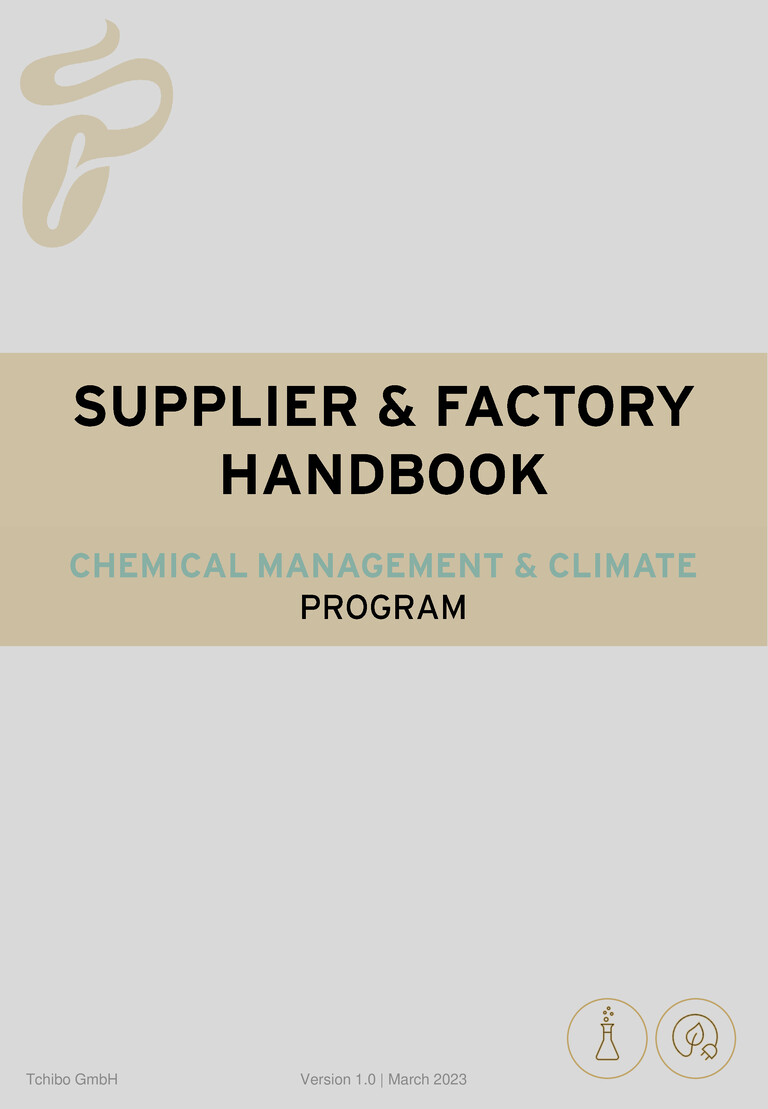
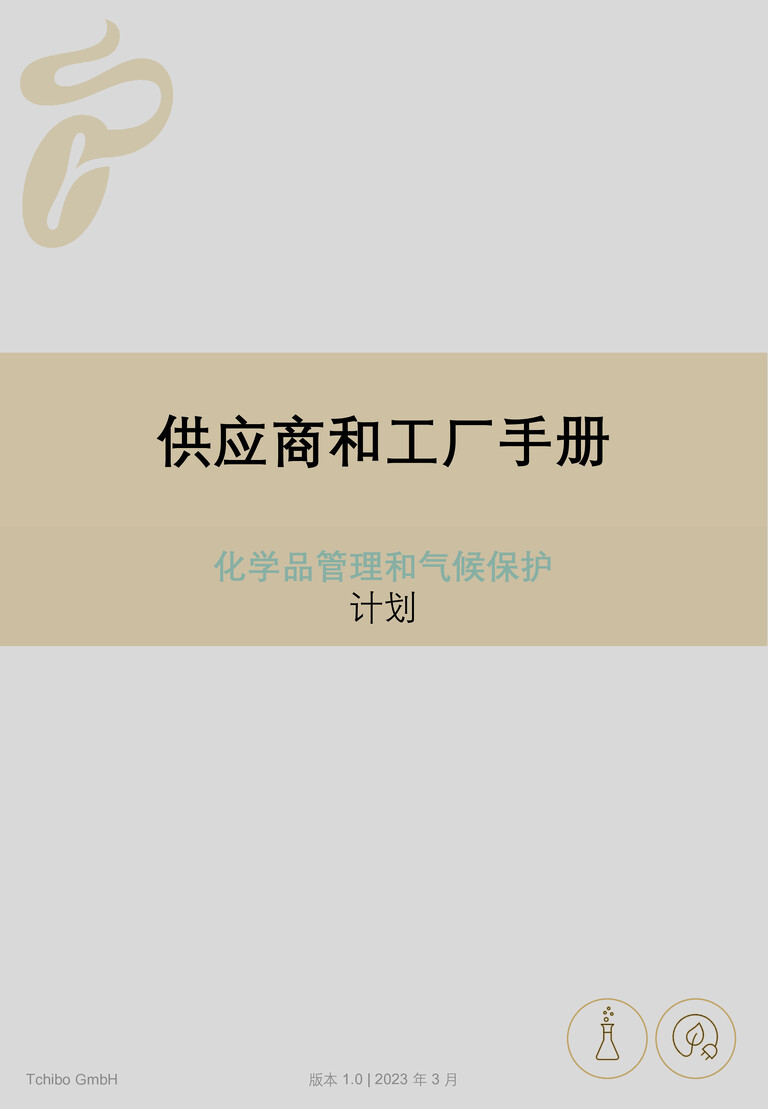
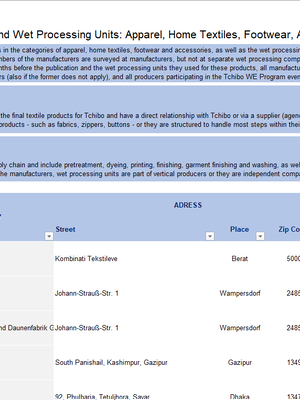
Manufacturers and Wet Processing Units: Apparel, Home Textiles, Footwear, Accessories - January 2026 (English)
Rules of Procedure for Grievances
We offer a grievance procedure for third-party complaints. This allows individuals and organizations to report human rights and environmental risks, as well as violations of human rights or environmental obligations, that have arisen through the actions of Tchibo or a direct or indirect supplier. The goal is to identify abuses in the supply chain at an early stage, resolve them – where possible in dialogue with those involved – and develop and implement effective preventive measures.
Agrarpolicy
On human rights and environmental policy in agricultural supply chains.
Policy to reduce animal suffering
We reject inhumane breeding, husbandry, slaughter, transport, and production conditions and are committed to ensuring that animals are treated ethically and in a species-appropriate manner throughout our supply chains.
